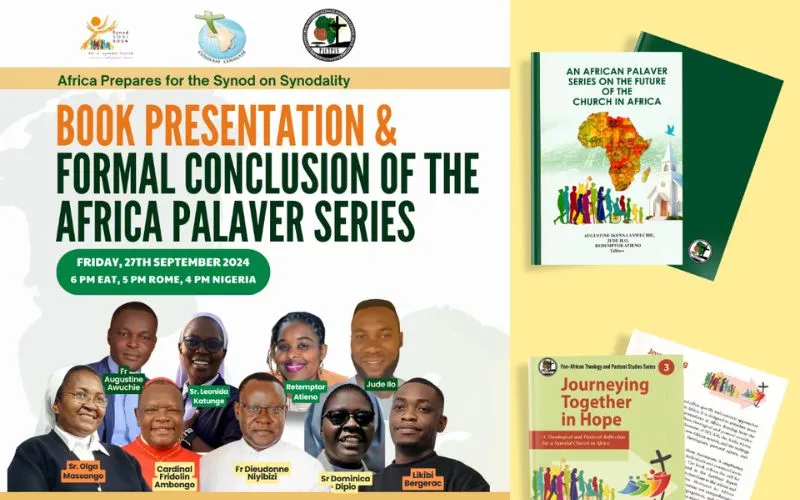Nairobi, 30 September, 2024 / 11:45 pm (ACI Africa).
Fridolin Cardinal Ambongo has lauded organizers of the just ended weekly synodal conversations that brought together African theologians and experts, including Clergy women and men Religious, and Laity, noting that the 14 weeks of engagement on “the future of the Church in Africa” amplified the voice of the continent in key global discussions.
In his address at the September 27 conclusion of the synodal sessions that ran between June 6 and September 6, Cardinal Ambongo said that the conversations, which participants referred to as “palavers” had been enriching and insightful and had helped “to light the path for the Church in Africa.”
“These conversations deepened our understanding of synodality and positioned the African Church as a key voice in the global discussion on leadership, evangelization and mission,” the Local Ordinary of the Catholic Archdiocese of Kinshasa in the Democratic Republic of Congo (DRC), who doubles as the President of the Symposium of Episcopal Conferences of Africa and Madagascar (SECAM) said.
He added, “As we come to the end of this journey, I would like to express my deepest gratitude to all those who have made this series possible.”
Members of the Pan-African Catholic Theology and Pastoral Network (PACTPAN) organized the palavers in collaboration with the Conference of Major Superiors of Africa and Madagascar (COMSAM).








